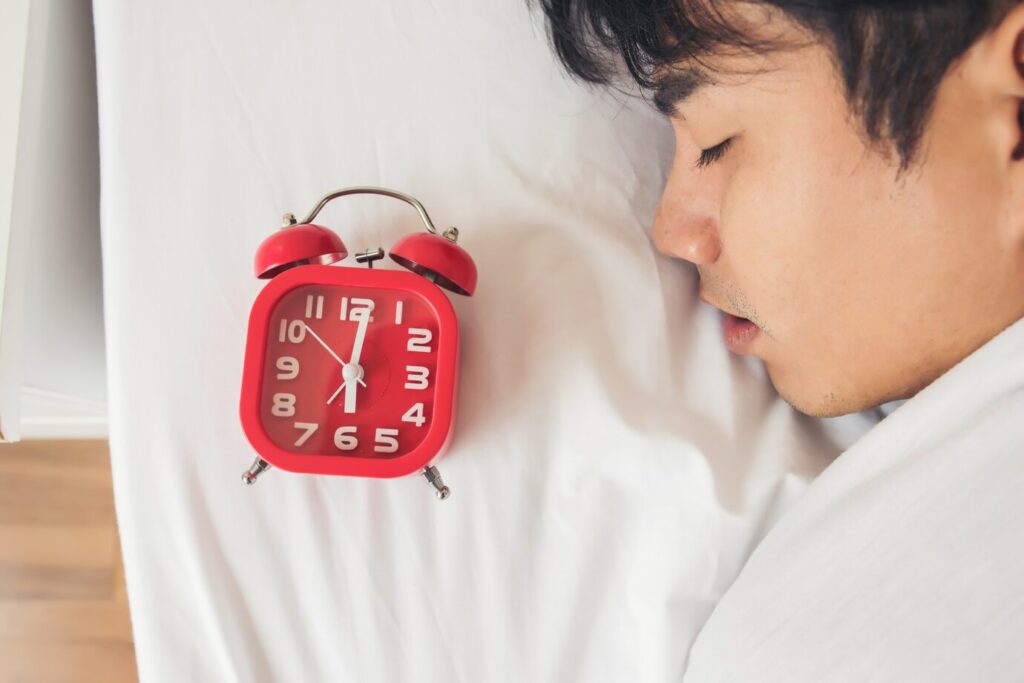If you find yourself struggling to fall asleep or wake up when you’d like, your circadian rhythm might be out of sync. This internal clock governs not just your sleep-wake cycles but also hormone release, body temperature, and even hunger patterns throughout a 24-hour period. Want to shift your sleep schedule? That means resetting your circadian rhythm. Here’s how to do it—starting with the basics.
What Is Circadian Rhythm?
Your circadian rhythm is a natural, internal process that regulates your sleep and wake cycles, repeating roughly every 24 hours. Nearly all living organisms have circadian rhythms—including humans, animals, plants, and even microorganisms.
In people, this rhythm is managed by a “master clock” located in the brain, keeping your body in tune with the external world—especially light and darkness. For instance, when your eyes sense darkness, your brain releases melatonin, a hormone that makes you feel sleepy.
6 Ways to Reset Your Circadian Rhythm
The good news is, you can shift your circadian rhythm through simple changes to your daily habits. While light is the most powerful influence, other factors like meal timing, physical activity, and screen use also play a role.
1. Make Gradual Schedule Changes
Start slow. If you’re adjusting your sleep or wake times, don’t make drastic shifts. Instead, move your bedtime or wake-up time by no more than 30–60 minutes per day until you reach your target.
Consistency is key—stick to your new schedule every day, even on weekends.
Tip: Jet lag is a perfect example of what happens when your circadian rhythm gets misaligned quickly—think sleep trouble, brain fog, and digestive issues.
“Before smartphones and screens, the sun was our natural alarm clock. Limiting device use before bed can go a long way in helping you sleep better.”
— Dr. Dustin Cotliar, Sleep Medicine Physician
2. Get Morning Sunlight
Light is your circadian rhythm’s biggest influencer. To wake up earlier, get outside and soak in natural sunlight soon after you wake up. If your goal is to stay up later, get light exposure later in the day instead.
Morning sunlight is especially effective in helping reset your internal clock. If outdoor light isn’t an option, consider a light therapy box to mimic natural light exposure.
3. Time Your Meals Strategically
Your body’s sense of hunger and digestion is also tied to your internal clock. Studies suggest that eating late can delay your circadian rhythm, while eating breakfast shortly after waking up and avoiding late-night meals can help shift it earlier.
To wake up earlier, eat earlier. To shift your rhythm later, eat later. Once you find a routine that works, stick to consistent meal times each day.
4. Watch Your Caffeine and Alcohol Intake
While caffeine may give you a temporary boost, it doesn’t reset your internal clock—and it can interfere with your ability to fall asleep. Try to cut back, especially in the afternoon and evening.
Similarly, alcohol might make you feel drowsy at first, but it disrupts your sleep quality and can lead to greater sleep issues over time. It’s best to avoid alcohol at least an hour before bed.
5. Exercise—but Not Too Late
Regular exercise can support healthy sleep, but the timing matters. Working out too close to bedtime can make it harder to wind down, particularly if you’re trying to go to bed earlier. If possible, schedule your workouts earlier in the day.
6. Minimize Artificial Light Before Bed
Humans evolved with the sun as their guide, so artificial light at night—especially blue light from screens—can throw off your rhythm. Reduce screen time and dim lights in the evening to help your body wind down naturally.
What Can Disrupt Your Circadian Rhythm?
Several habits and environmental factors can throw your circadian clock out of balance, including:
-
Inadequate sunlight during the day
-
Artificial light exposure (especially blue light) at night
-
Irregular sleep and wake times
-
Eating meals at inconsistent hours
-
Physical activity late in the evening
-
Working night shifts or rotating shifts
-
Crossing time zones (jet lag)
By making mindful adjustments to your routine—especially when it comes to light, meals, and bedtime habits—you can gradually reset your circadian rhythm and improve your sleep. Small changes, done consistently, can make a big difference.



